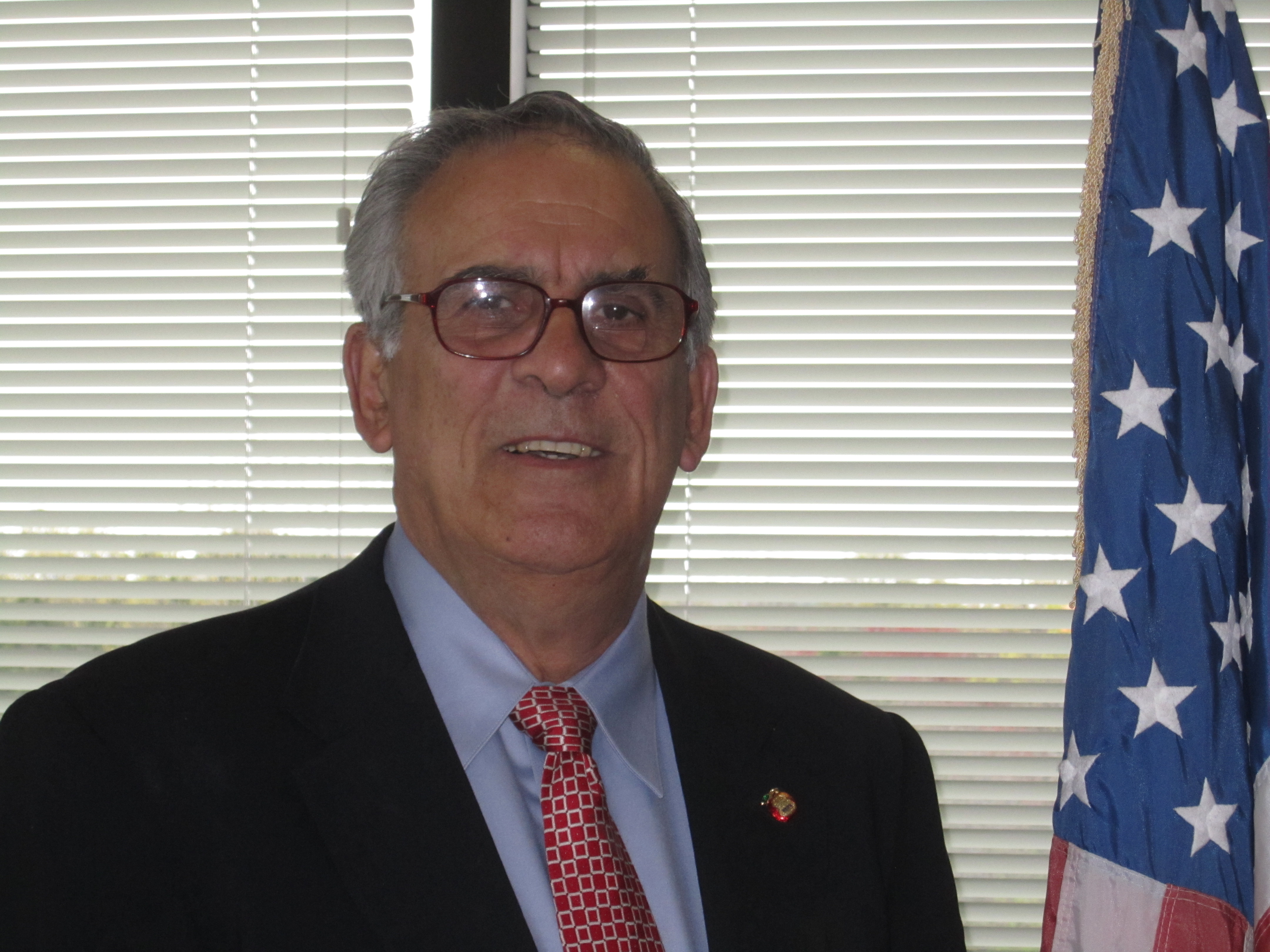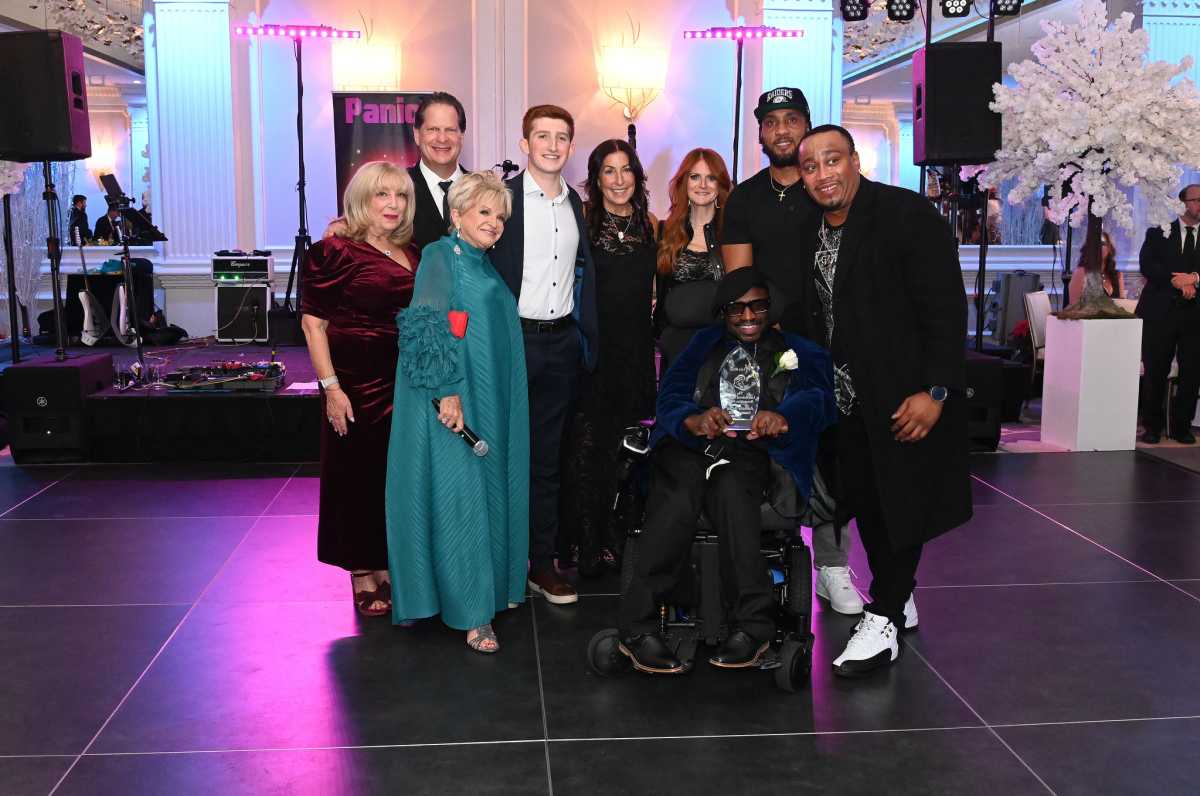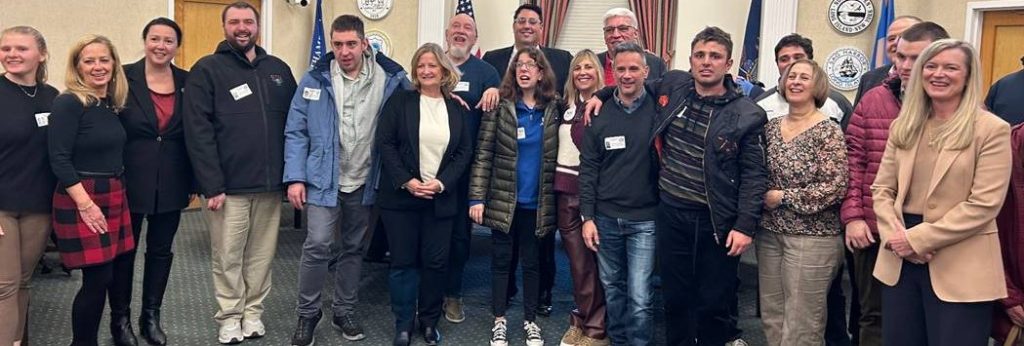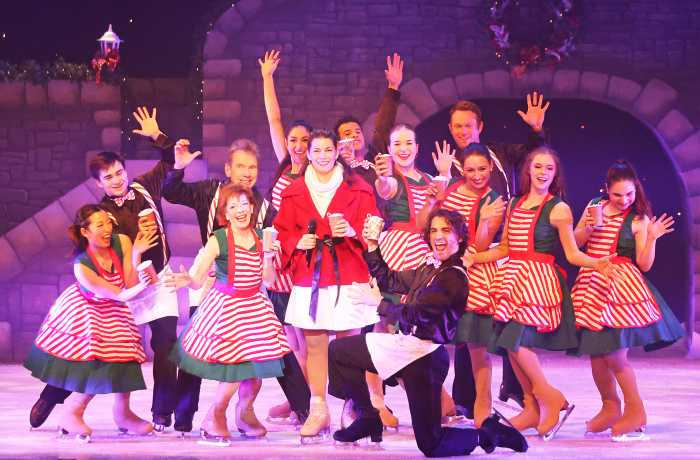Who's Here: Judge Ralph Gazzillo, Author

“That badge isn’t real, and the 37th precinct doesn’t exist.” Ralph Gazzillo is tapping the cover of his intriguing debut novel, The Dark Shield (iUniverse). And he’s about to tap into one of the reasons why he thinks his absorbing police procedural resonates with authenticity. He knows—he really knows—what he’s writing about. Before The Hon. Ralph T. Gazzillo became county court judge in Suffolk County, presiding over criminal and now civil cases, he was an assistant district attorney and a defense lawyer, and before that, a working cop in Brooklyn. Research? “Not necessary,” he’s “been around” police for years and the courts for as many, prosecuting, defending, ruling from the bench, all of which have given him a savvy and unique take on crime and the law. “You can tell an ex-cop wrote this,” someone told him. He’s not sure if it was a compliment or a criticism, but he’s being coy.
“Every lawyer or cop who writes a book says ‘no one’s going to believe this.’” Gazzillo, however, drew not on the kind of eccentric or unbelievable circumstances that turn up on TV shows but on actual and everyday police and courtroom behavior, right down to the inane bureaucracy that can often drive experienced lawyers and investigators nuts, or, as one of his central characters remarks of someone else in his division, “the incompetent telling the uninterested the unnecessary.” Many medical shows don’t always get it right, either, he notes—his doctor friends don’t watch them. “What does the public know! It’s theatre,” he says of many shows. In actuality, much detective work, as his characters demonstrate, has to do with “tenaciousness.” Blind alleys are common, as is reliance on “squeals” and knowing people who maybe shouldn’t, but do quietly assist, who deal in what The Dark Shield calls a “bag of tricks, unspeakable covert operations.”
Indeed, more than a couple of myths are implicitly exploded in The Dark Shield, including the kinds of questions permitted of lawyers in the courtroom or the frequency and nature of forensic science in police work. He pauses, then makes a poignant observation: science and technology have done so much to improve our way of life, but have done nothing about our being such a violent society. He recalls how he once saw someone killed over a bottle of beer. “It’s a tough job, being a cop.” You have to have your wits about you and not do split-second shooting. There’s also the politics of the system, as The Dark Shield shows, a hierarchal culture where getting to work on the Major Case Squad, covering sensational or extreme cases, is considered the “premier job.” His good guys are not even close, at least not until the end. Incidentally, only one of the characters in The Dark Shield is based on someone he knew, says Gazzillo—the waitress, Lorraine (his first love when he was 19), but, with one exception, they all ring true. The woman Joe obsesses over, the sex and money crazed Carolyn, could be said to resemble John Edwards’ mistress. The villain Vincent Martin, however, is totally fictitious, an extreme example of evil.
Writing The Dark Shield did not come easy for him, Gazzillo says. He started the book 10 years ago when his main protagonist was not the good but flawed and hot tempered cop, Joe McKeefe or his likable, prankster partner Mike, but the feared, sarcastic hardliner judge, The Hon. Manuel Lopez Ramos—“That son of a bitch wouldn’t dismiss a case if God, the Supreme Court of the United States, and his own mother told him to.” About three chapters in, however, Gazzillo saw that “books about judges are boring” because judges are reactive, not proactive. But he also had become, over the years, savvy about plot. Ramos, who opens the book, drops out, but is brought back toward the end and surprises (convincingly) with a deepened characterization that shows his humanity alongside his bullying courtroom manner. Of course, Gazzillo points out, a decade ago women were not active as they are now, in both law enforcement and in court. And Joe really should have a cellphone instead of running to public phones.
The first member of his family to go to college, Ralph Gazzillo was not at first particularly interested in higher education. He wanted to be a cop. But he did go to the John Jay College of Criminal Justice (CUNY) and got an Associate Arts degree. He then won a scholarship to Pace University though his thoughts were on accounting, not law—“I loved doing taxes.” A friend, however, suggested he take the LSAT, and he did, doing well enough to qualify for admission to New York University School of Law, after which he was admitted to the Bar in the New York State Appellate Division, Second Department in 1982. For a few years, he worked in a small firm on Staten Island, doing mostly matrimonial cases, but landed a job in theD Rackets-Narcotics Division of the Suffolk County D.A’s office. The junkie life and lingo that permeate The Dark Shield obviously reflect this experience.
Gazzillo’s diverse career shows in this insider look at the criminal justice system. It’s been said that a first novel tends to be autobiographical and in this regard it’s true. Unlike many spastically edited crime shows on TV, The Dark Shield immediately manifests its bona fides in both dialogue and action that contribute to its sustaining interest. But factor in steamy sex scenes (“every novel’s gotta have ‘em,” a friend once told him). Gazzillo’s daughter, a teacher in Poughkeepsie, read the book and was kind of quiet about it afterward, and his cousin’s wife read it and told him, “I can never look you in the eye again.”
On the other hand, he asks with a trace of irony or surprise, “Women readers like those sections, why is that?” We won’t go there.









